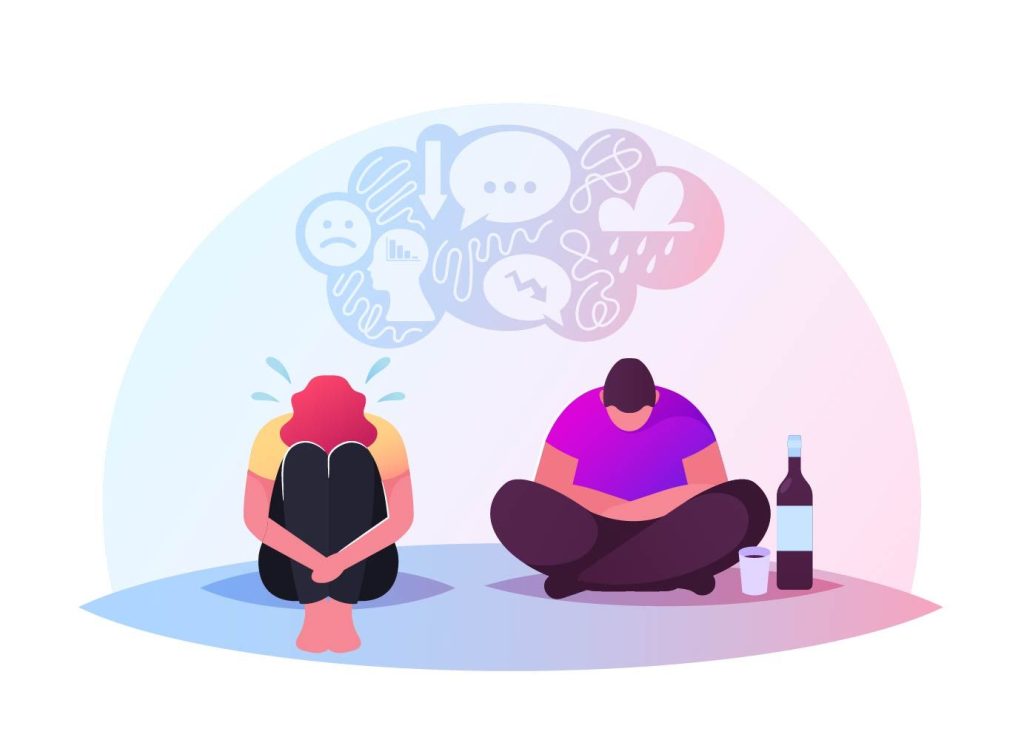Do you sometimes feel like you’re out of control? Like you can’t calm down or think straight? If so, you might be experiencing symptoms of mania disorder. This serious mental illness can cause a wide range of symptoms that make everyday life difficult to manage. In this blog post, we will discuss the signs and symptoms of manic disorder, as well as the various treatment options available. We hope that this information will help you get the help you need.
Contents
What Is Mania?
Mania is a mental health disorder that is characterized by abnormally elevated mood, energy, and activity levels. People with mania may feel very happy and elated, or they may be irritable and angry. They may have an inflated sense of self-importance and be overly talkative.
Different Types Of Mania
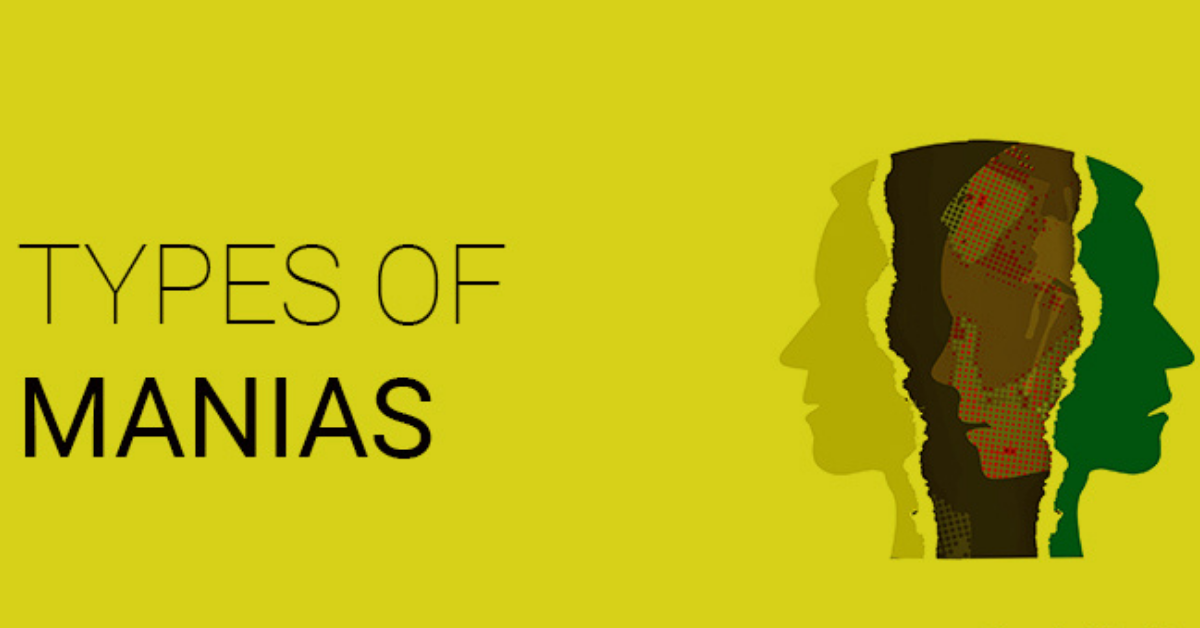
There are many types of mania, but some of the most common include:
Grandiose Mania
This type is marked by a feeling of being larger than life and having superhuman abilities. You might feel like you can do anything. It also involves grandiose thinking, in which you believe that your plans or schemes are going to be successful.
Depressive Mania
This is a state of both depression and mania at once. It’s marked by symptoms like irritability, depressed mood, and mood lability (mood changes rapidly). You might have periods with racing thoughts followed by periods where it takes a lot of effort to do anything. This type can also include psychotic features (like hallucinations) as well as catatonia.
Mixed Mania
A mixed episode involves the symptoms from manic episodes along with the symptoms from depressive episodes. This can occur during bipolar disorder I or II. The combination of the two types of symptoms together makes for an extremely intense experience.
Acute Mania
Acute mania is a type of mania that comes on suddenly and lasts for a short period of time. It might last for just a day or two, or it could be as long as a week. This type is often seen in people who have bipolar disorder I. It also sometimes occurs in people who have cyclothymia, a milder form of bipolar disorder.
Hypomania
This is another type of mania, but it’s less severe than full-blown mania. It still results in significant impairment in functioning, but it doesn’t cause the same level of distress as full-blown mania. People with hypomania might have increased energy and activity levels, be more talkative, and have a decreased need for sleep.
Symptoms of Mania
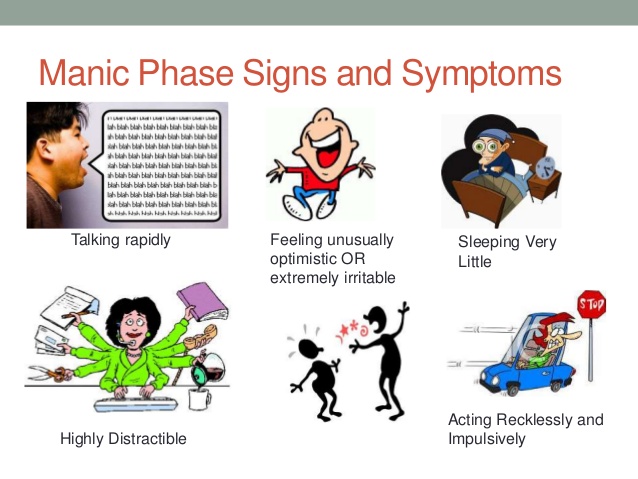
The symptoms of mania can vary from person to person, but some common symptoms include:
Increased Energy and Activity Levels
Mania is one of the most noticeable symptoms of bipolar disorder type I. It includes increased energy levels, a decreased need for sleep, and an elevated mood. People with mania tend to be more talkative than usual as well.
Grandiosity
During mania, you might feel like you are larger than life or have superhuman abilities. You may also think that your plans or schemes will work out perfectly even if they’re unrealistic in reality (grandiose thinking). These beliefs can lead to impulsive behavior during manic episodes.
Racing Thoughts
Racing thoughts are a common symptom of mania. This occurs when your thoughts are going so quickly that you can’t keep up with them. You might also feel like there’s a lot of noise in your head or that your thoughts are out of control.
Decreased Need for Sleep
People with mania often have a decreased need for sleep. They may stay up all night because they have so much energy, and then be extremely tired during the day. Sometimes people with mania will also have a decreased appetite.
Irritability and Mood Lability
Mania can also cause irritability and mood lability. This means that your mood changes rapidly, often for no reason at all. You might feel really happy one minute and really angry the next.
Psychotic Symptoms
In some cases, people with mania may experience psychotic symptoms like hallucinations or delusions. These symptoms can be very distressing and may interfere with your ability to function normally.
Causes of Mania
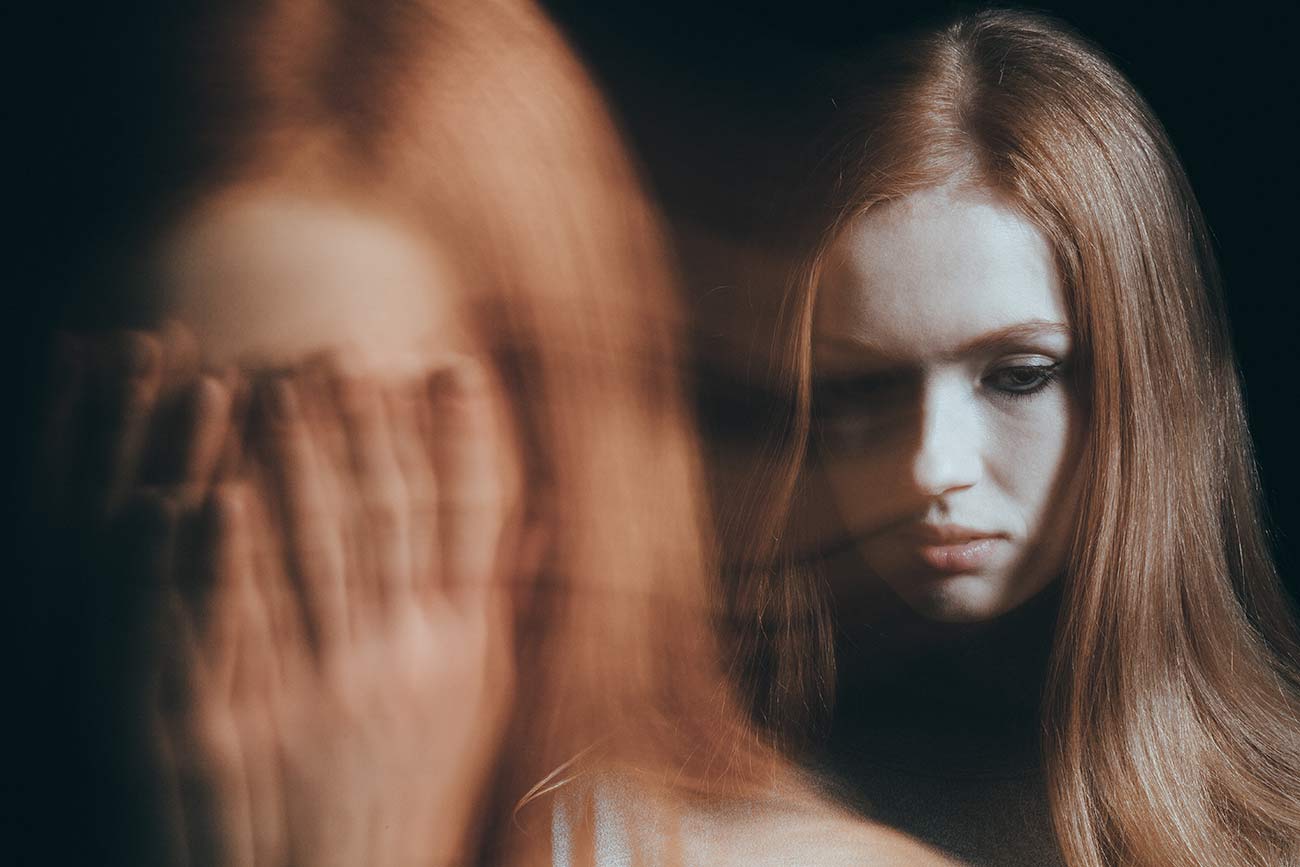
There are many causes of mania as well. Some of these are:
Medications
Certain medications can cause mania. This includes some antidepressants, antipsychotics, and mood stabilizers. These are also known as psychoactive medications. Sometimes people with bipolar disorder will stop taking their medications and then experience a manic episode.
Substance Abuse
Alcohol and drug abuse can also cause mania in people who have a predisposition to developing the condition (such as those with bipolar disorder). This is especially true of stimulants like cocaine or amphetamines. Some people use these drugs because they think they will help them feel better, but they end up making things worse instead. Other types of substances that might lead to mania include caffeine and nicotine.
Hormonal Changes
Changes in hormones may be linked to Mania as well, such as menstrual cycle changes for women or hormonal imbalance after giving birth (postpartum mood swings). Hormone replacement therapy has also been shown to increase the risk of mania in some people.
Sleep Deprivation
Lack of sleep can also lead to mania in some people. This is because lack of sleep can cause changes in your mood and energy levels. It’s important to get enough sleep so that you don’t experience these types of problems.
Stress
Stressors like a death in the family, a breakup, or financial troubles may trigger a manic episode in people who are predisposed to developing bipolar disorder. Sometimes stress can lead to substance abuse or lack of sleep, which may also trigger mania.
Diagnosis of Mania
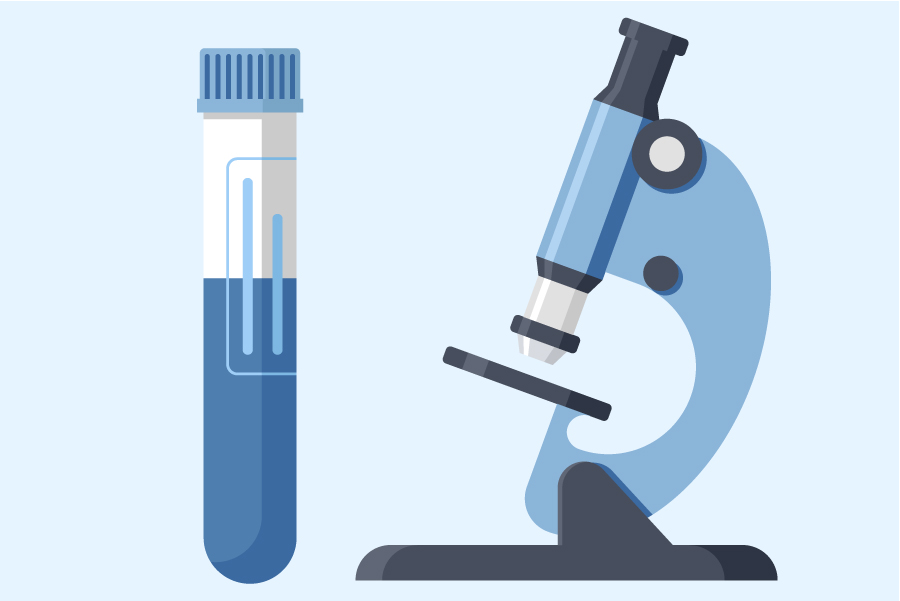
The diagnosis of Mania is based on your symptoms. Your doctor will ask about your mood, energy levels, thoughts, and behavior during the past week or so. They may also do a physical exam to rule out other causes of your symptoms.
Sometimes your doctor will order blood tests or other tests to help with the diagnosis.
If you want to diagnose mania at home, there are some self-test questionnaires that you can use. One is the Mood Disorder Questionnaire (MDQ), which can be found online. Some other tests are:
Young Mania Rating Scale (YMRS)
This test is used to measure the severity of mania symptoms. It contains approximately 11 questions and takes about five minutes to complete.
Hamilton Rating Scale for Depression (HRSD)
This test is used to measure the severity of depression symptoms. It contains 17 questions and takes about 15 minutes to complete.
Mood Disorder Questionnaire (MDQ)
This questionnaire is used to screen for bipolar disorder. It contains 13 questions and takes about five minutes to complete.
Hypomania Checklist (HCL-32)
A hypomania test is used to diagnose hypomania. It contains 32 questions and takes about 20 minutes to complete.
Negative Impacts of Mania

There are several complications that can occur with mania, including:
- Depression: Depression is a common complication of mania because people often experience depressive symptoms after having had an episode of mania or hypomania. This means they might have trouble sleeping at night, feeling sad all day long, losing interest in activities they once enjoyed, and having thoughts of suicide.
- Suicide: Approximately 50% of people with bipolar disorder will attempt suicide at some point in their lives.
- Self-harm: People with mania may harm themselves as a way to cope with the intense emotions they are feeling. This can include cutting or burning oneself, pulling out hair, or bruising oneself.
- Drug and alcohol abuse: Many people with mania turn to drugs and alcohol as a way to self-medicate their symptoms. This can lead to addiction and further problems such as liver damage or heart problems.
Treatment of Mania

There are many treatment options for Mania. Some of these are:
Medications
There are many different medications that can be used to treat mania. These include mood stabilizers, antipsychotics, and antidepressants. It’s important to find the medication that works best for you and that has the fewest side effects. These are some of the medications that one can use:
- Lithium: This is the most commonly prescribed medication for bipolar disorder and it helps to stabilize mood swings.
- Anticonvulsants: These medications are often used to treat seizures, but they have been found to be effective in treating mania as well.
- Atypical antipsychotics: These medications are used to treat schizophrenia and other psychotic disorders, but they have also been shown to be effective in treating mania.
Psychotherapy
Psychotherapy is a type of therapy that can help you learn how to deal with your symptoms. It can also help you understand the causes of your mania and how to prevent future episodes. These are some of the therapies that one can use:
Cognitive Behavioral Therapy (CBT)
This type of therapy is based on changing your thoughts and behaviors in order to improve your mood. This therapy is often used for people with depression or anxiety, but it may also be helpful for people who have bipolar disorder. It’s important to find a therapist who specializes in CBT so they can help you learn how to change these negative thought patterns and behaviors.
Interpersonal Therapy (IPT)
This type of therapy focuses on improving relationships with other people. People with bipolar disorder may experience problems managing their relationships because they don’t know how to control their mood swings or irritability during an episode of mania, which makes it hard for them to maintain relationships. IPT can help you learn how to better manage your relationships and improve communication with others.
Family-Focused Therapy (FFT)
This type of therapy is designed to help families deal with bipolar disorder. It helps family members understand the illness, recognize symptoms, and develop strategies for managing the illness. FFT also teaches family members how to support their loved ones during an episode of mania and how to prevent future episodes from occurring.
Support Groups
Sometimes people with bipolar disorder benefit from joining a support group. They can meet other people who have the same illness and share their experiences, which helps them feel less alone in their struggles. It also gives them an opportunity to learn more about managing the illness from others who have been successful at doing so.
Precautions To Take For Mania
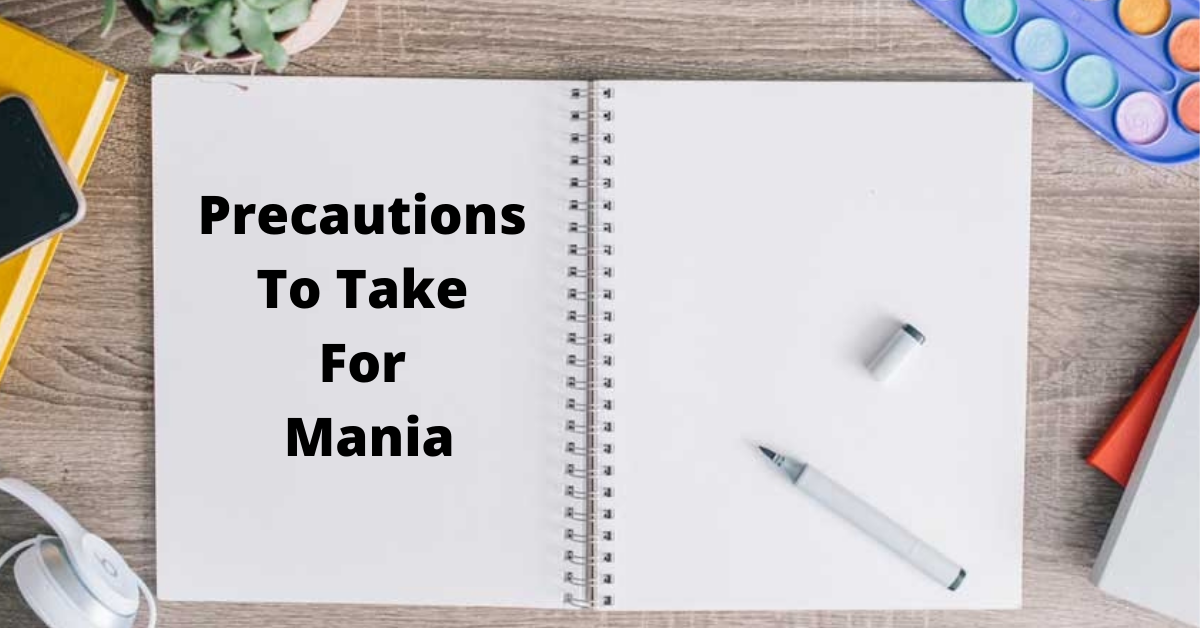
There are a number of precautions that can be taken to prevent mania from occurring:
Exercise
This is important for many reasons, but it may help regulate moods as well! Spend time outdoors whenever possible because natural light has been shown to improve mood and energy levels (even if you’re not feeling depressed). If there isn’t any sunlight available, try using fluorescent lighting instead of incandescent bulbs–the color spectrum from fluorescent bulbs is closer to natural sunlight.
Get Enough Sleep
This one is probably easier said than done, but it’s important! Most people need around eight hours of sleep per night, so try to stick to a regular bedtime schedule and avoid using electronic devices before bed.
Eat Healthy Foods
Eating healthy foods is essential for keeping your body and mind healthy. Make sure you’re eating plenty of fruits, vegetables, whole grains, and lean protein. Avoid processed foods and sugary drinks whenever possible.
Stay Connected To Supportive People
It’s important to have people in your life who support you and are there for you when you need them. These people can provide emotional support during difficult times and can help you stay on track with your treatment plan.
Take Your Medications As Prescribed
This is probably the most important thing you can do to prevent mania! If you’re taking medications for bipolar disorder, make sure you’re taking them as prescribed and that you’re not skipping doses. Talk to your doctor if you have any questions or concerns about your medications.
Avoid Caffine
Sometimes if you drink too much coffee or other caffeinated beverages, it can make your symptoms worse. Try to limit how often you consume caffeine and avoid having more than one cup per day (or less if possible).
Avoid Alcohol And Drugs
Don’t use drugs or alcohol as a way to self-medicate! This will only make things worse in the long run because these substances can worsen symptoms and cause other problems for you. It’s better not to use them at all than risk dealing with their negative effects on your health later down the line.
Monitor Your Moods
This may seem obvious, but many people don’t realize they have the bipolar disorder until they experience an episode of depression or mania that lasts longer than usual (or if they go through both extremes). Keep track of when these mood swings happen so you can talk about them with your doctor before they get out of control.
Get Help From Professional
If you think that your moods are getting worse or if you’re having trouble managing them on your own, don’t be afraid to ask for help. Talk to someone who understands what it feels like and can offer support without judgment–this may include a counselor at school or work, close friend/family member, therapist/psychiatrist (if needed). You deserve the best possible life right now so make sure there isn’t anything standing in your way–including untreated bipolar disorder symptoms.
Helping Someone With Mania

If you know someone who is experiencing mania, there are a few things you can do to help:
- Restrain them if necessary: If the person is behaving in a way that could be harmful to themselves or others, it may be necessary to restrain them until they calm down.
- Talk to them calmly and rationally: It’s important to talk to the person in a calm and rational manner so that they can understand what is happening.
- Stay positive: Try not to get angry or frustrated with the person, as this will only make things worse.
- Provide support: Let the person know that you are there for them and offer emotional support.
- Encourage treatment: Encourage the person to seek treatment for their mania.
Conclusion
If you have been diagnosed with a mental health condition, it is important to know what your triggers for relapse are. This can help you prevent manic episodes from happening in the first place and be more prepared if they do occur. In addition, knowing how to identify these warning signs early on will allow you to seek treatment as soon as possible which may make all of the difference in preventing serious consequences like suicide or psychosis. We hope this article has given some insight into the diagnosis and prevention of bipolar disorder so that those who suffer from it can better understand their own conditions and take steps toward living happy lives free of mania.
A Word From Therapy Mantra
Your mental health — your psychological, emotional, and social well-being — has an impact on every aspect of your life. Positive mental health essentially allows you to effectively deal with life’s everyday challenges.
At Mantra Care, we have a team of therapists who provide affordable online therapy to assist you with issues such as depression, anxiety, stress, relationship, OCD, LGBTQ, and PTSD. You can take our mental health test. You can also book a free therapy or download our free Android or iOS app.
